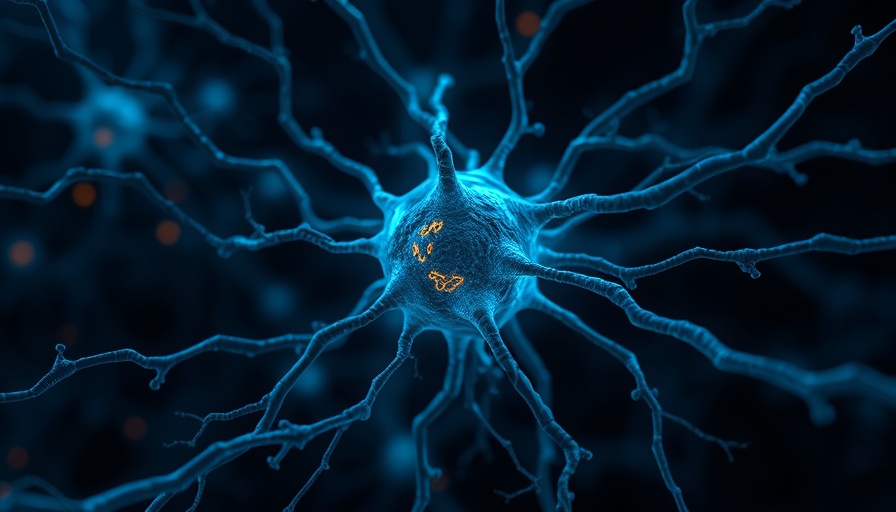
Unlocking the Secrets of Memory: The Role of Key Proteins
As our understanding of brain health evolves, researchers have honed in on a particular protein that may hold the key to combating memory loss and neurodegenerative diseases such as Alzheimer's and Parkinson's. This protein, known as tau, plays a critical role in maintaining neuronal structure and function, appearing to become dysfunctional in the presence of neurodegenerative conditions.
Historical Context: A Journey in Brain Research
The journey of understanding tau's importance began decades ago when scientists first identified its role in neuronal stability. However, only recently have advanced imaging techniques and molecular biology rallied to bring new insights into how tau contributes to cognitive decline. Observations of tau tangles deep within the brains of Alzheimer's patients catalyzed further investigations into their potential as therapeutic targets.
Connecting Dots: Why This Information Matters
The implications of researching tau proteins extend far beyond the laboratory. Understanding these mechanisms equips healthcare providers and the public with valuable information essential for advancing health and wellness. It is through this lens that we can appreciate the necessity of early intervention strategies that focus on cognitive health.
Future Predictions: What Lies Ahead in Neurological Health
As we delve further into the role of tau proteins in neurodegenerative diseases, predictions abound regarding potential breakthroughs in treatment options. Innovative therapies aiming to reduce tau aggregation may soon emerge, revolutionizing how we approach conditions such as Alzheimer's. Community health and wellness initiatives will likely incorporate this knowledge, emphasizing preventative care and cognitive visibility for aging populations.
Expert Insights: Perspectives on Neurodegenerative Diseases
Leading neurologists emphasize the importance of not only medical interventions but holistic health practices that promote mental wellness. Factors such as nutrition, exercise, and social connection are critical in supporting brain health. Health and wellness businesses may begin integrating discoverable treatments that align with strengthening cognitive functions and overall vitality.
Building a Better Future: Decision-Making with New Insights
The understanding of tau proteins can motivate individuals to make informed decisions about their lifestyle. Integrating practices like regular physical activity, balanced nutrition, and cognitive challenges into daily life helps mitigate memory loss risks. At the community level, events focusing on brain health and wellness provide that essential support network, creating powerful channels for sharing knowledge and resources.
Addressing Misconceptions: Separating Fact from Fiction
Many misconceptions persist about neurodegenerative diseases, particularly regarding causative factors and lifestyle effects. It's crucial not to regard these conditions simply as inevitable consequences of aging. Emerging research suggests that engaging both the mind and body can greatly influence health outcomes. For example, employing natural therapies, such as those provided by naturopathy, alongside conventional treatments, may enhance well-being.
Conclusion: Taking Action for a Healthier Future
As researchers continue to investigate the role of tau proteins in memory and neurodegenerative diseases, the message becomes clear: we each play an active part in safeguarding our brain health. Embracing holistic health strategies, preventative care, and community support is vital in promoting longevity and well-being. If you're curious about the latest discoveries in brain health and how they can impact your life, look out for upcoming health and wellness events in your community. Engage, learn, and embrace a future filled with cognitive vitality.
 Add Element
Add Element  Add Row
Add Row 



 Add Row
Add Row  Add
Add 


Write A Comment